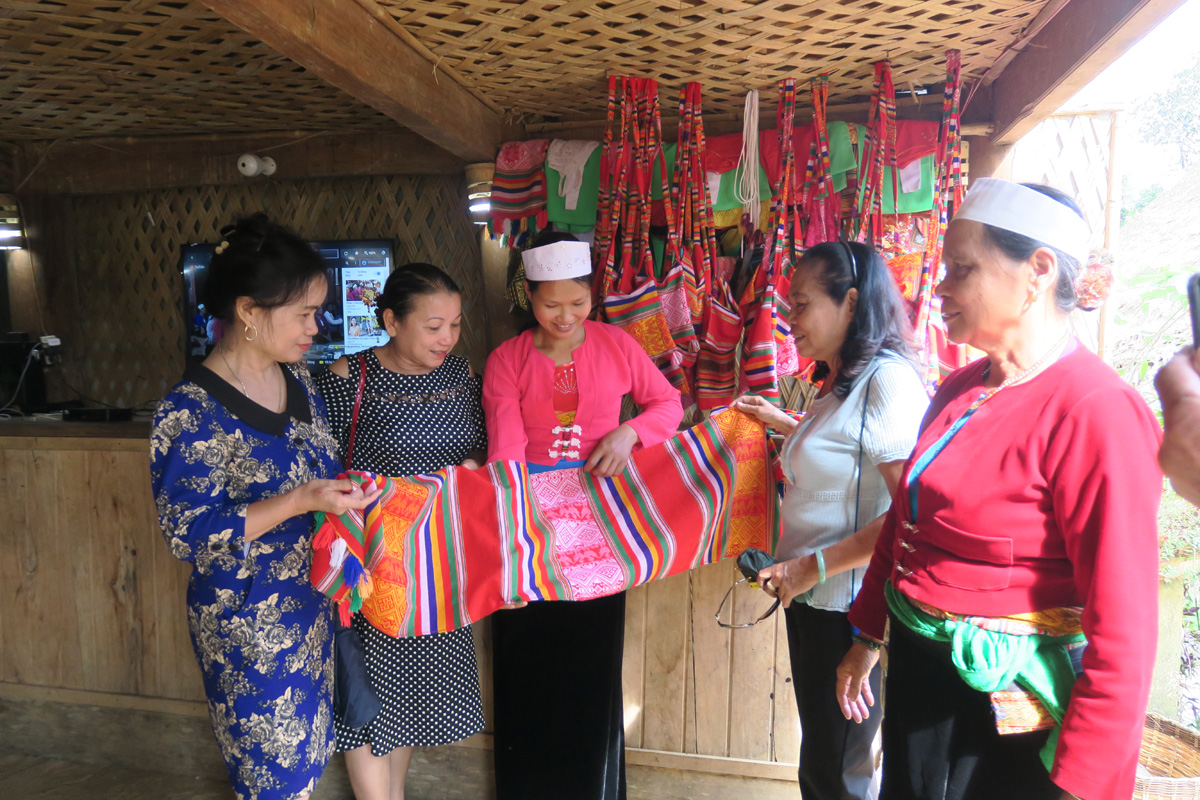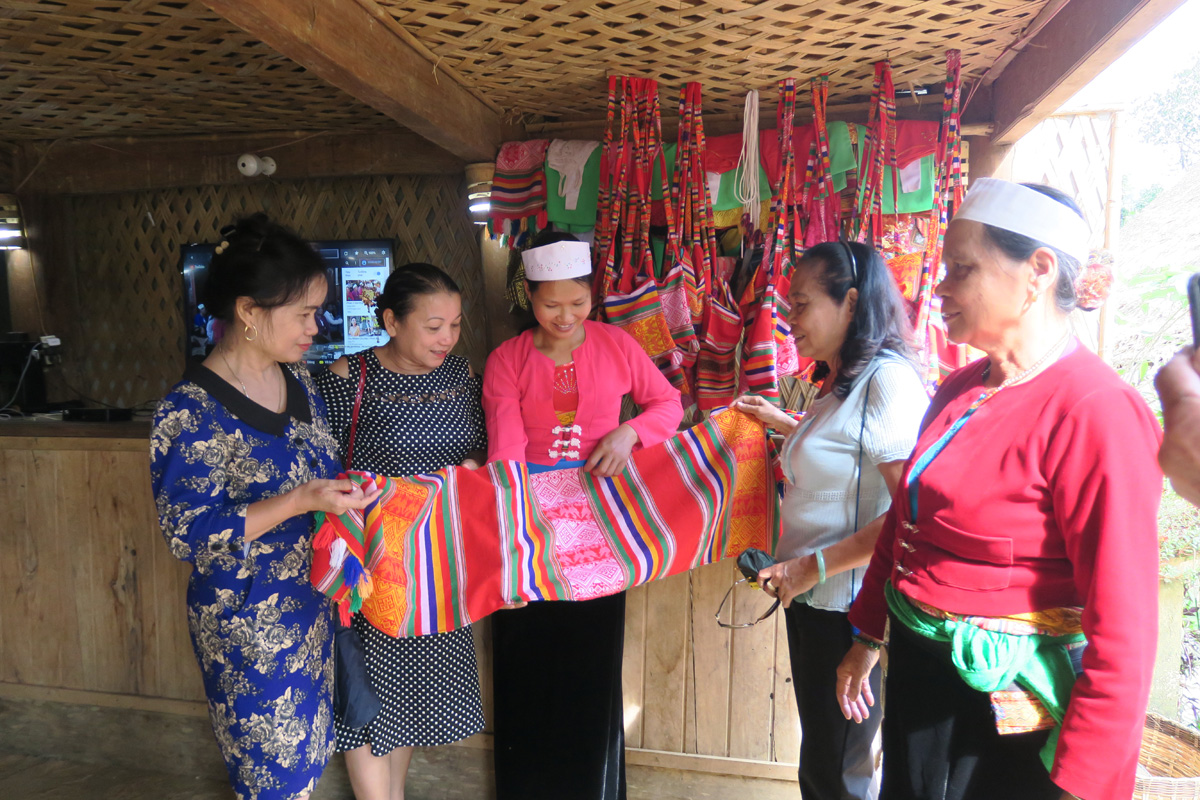
(HBO) - Muong Vang in Lac Son district is one of the four biggest and best-known Muong ethnic areas in Hoa Binh. With 90 percent of the local population being Muong ethnic people, the district has always paid special attention to the preservation and development of the local traditional cultural value.

Residents in Mu village, Tu Do commune (Lac Son) still keep the traditional
cultural characteristics in their brocade products
As
part of efforts to conserve the local intangible cultural heritage, the
district has revived a number of traditional festivals such as Coi Temple
festival in Vu Binh commune, the procession of Khu Dung cave spirit in Nhan
Nghia commune, the Xuong dong festival to pray for bumper crop in Yen Phu commune,
and Du Voi festival in Vụ Ban township.
Several
historical and cultural relics in the district have been recognised as
provincial-level relics, namely Cay Si Temple, Truong Kha Temple and Thuong
Temple in Vu Ban township, Mau Temple in Vu Binh commune and Mu waterfall
scenic spot in Tu Do commune.
Surveys
have revealed that local residents are keeping over 3,000 sets of gongs. Local
authority has held classes for young people to learn the art of gong from
elderly people. At the same time, the
district also organizes gong performance and folk singing competitions along
with Muong ethnic costumes shows to promote the traditional culture.
Besides,
the district has paid attention to maintaining the brocade weaving craft in Luc
hamlet, Yen Nghiep commune, and rattan weaving in Bui hamlet, Nhan Nghia
commune, which helps preserve the traditional cultural identity and serve
tourism at the same time./.
With an increasingly vibrant and widespread emulation movement aimed at building cultured residential areas and cultured families, Yen Thuy District has been making steady progress toward improving both the material and spiritual well-being of its people, while fostering a civilized, prosperous, beautiful, and progressive community.
Once lacking recreational spaces and community facilities, Residential Group 2 in Quynh Lam Ward (Hoa Binh City) has recently received attention for the construction of a new, spacious, and fully equipped cultural house. The project followed the model of state support combined with public contributions in both labor and funding.
The "All people unite to build cultural life" movement, which has been effectively integrated with Kim Boi district’s socio-economic development goals, is fostering a lively spirit of emulation across local residential areas, hamlets, villages, public agencies, and enterprises. In addition, through the initiative, traditional cultural values are being preserved and promoted, while community solidarity and mutual support in poverty reduction and economic development are being strengthened.
A working delegation of the Hoa Binh provincial People’s Committee led by its Permanent Vice Chairman Nguyen Van Toan on June 11 inspected the progress of a project to build the Mo Muong Cultural Heritage Conservation Space linked to tourism services in Hop Phong commune, Cao Phong district.
Born and growing in the heroic land of Muong Dong, Dinh Thi Kieu Dung, a resident in Bo town of Kim Boi district, in her childhood was nurtured by the sweet lullabies of her grandmother and mother. These melodies deeply imprinted on her soul, becoming an inseparable part of her love for her ethnic group's culture. For over 20 years, this love for her hometown has driven Dung to research, collect, and pass down the cultural values of the Muong people to future generations.
In the final days of May, the Ethnic Art Troupe of Hoa Binh Province organized performances to serve the people in remote, mountainous, and particularly disadvantaged areas within the province. These were not just ordinary artistic shows, but they were the meaningful journeys aimed at spreading cultural values, enhancing the spiritual life of the people and contributing to the preservation of ethnic minority cultural identities.



